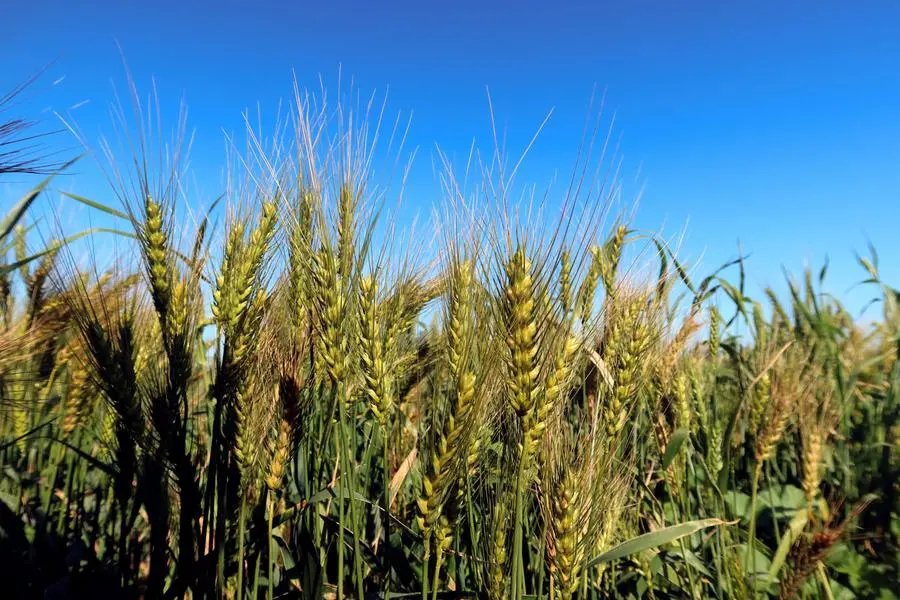PHOTO
Tunisian wheat farmer Hasan Chetoui is seeking inspiration from the deep past as he tries to adapt to drought caused by climate change, sowing old wheat varieties that he hopes will produce crops throughout the year.
Chetoui does not believe his experiment with alternative types of wheat is likely to work everywhere, but he thinks it may help him cope after years of scant rains and heatwaves that destroyed much of his crop last year.
"We obtain an old Tunisian type of wheat, cultivated in the field, capable of producing multiple times a season, providing us with strategic solutions," he said.
Chetoui's farm is located in the Borj Al-Amri area of northern Tunisia, a region that was a bread basket for Mediterranean civilisations stretching back to ancient Rome and Carthage, though Tunisia is now a net wheat importer.
Years of drought affecting much of North Africa have emptied Tunisian reservoirs and dried up crops, while a succession of scorching summers have seared some of those that remain.
Chetoui hopes that by avoiding reliance on a single summer harvest, he may be able to produce at least some wheat even in bad years. He and agricultural union officials said other farmers have resorted to traditional seeds, but had only anecdotal accounts of their experience.
Agricultural experts in Tunisia are sceptical that old wheat varieties will succeed in protecting farmers from the impact of climate change, and point out that modern wheats produce far higher yields.
However, they also say older varieties may work better in certain areas or under specific conditions, and that Chetoui's experiments are worth under taking.
"We cannot determine whether they will succeed or fail because we cannot assess the effectiveness until it is implemented on a large scale," said Mohamed Rajaibia of the Tunisian Agricultural Union.
Chetoui began working on farms at the age of 12. Now 64, he still seeks seeds for old grain varieties including corn and barley as well as wheat, for use in his fields.
For years he has been sowing harvests with seeds that he says were used in his family for generations and were handed down to him by his father.
He has also used some old varieties from the Tunisian seed gene bank, he said, and has collected seeds from other farmers who said they were family inheritances including some that are not registered with the gene bank.
"We must rely on our original Tunisian seeds because, through experience and knowledge, these seeds hold the solution and can contribute to many strategic solutions in addressing food crises," he said.
Not all experts disagree with this notion.
"Original seeds are rooted in nature, rooted in the quality of the soil and rooted according to the location, and they have the ability to adapt," said Hussein al-Rhaili, an agriculture policy expert in Tunisia.
(Reporting by Jihed Abidellaoui and Tarek Amara; writing by Angus McDowall; editing by Mark Heinrich)





















